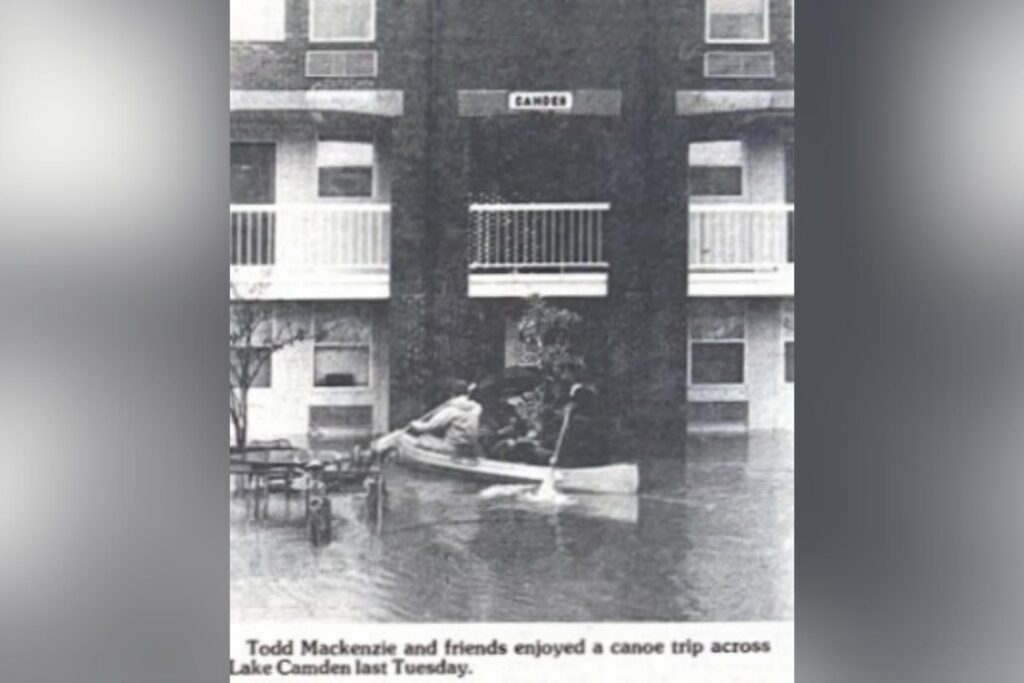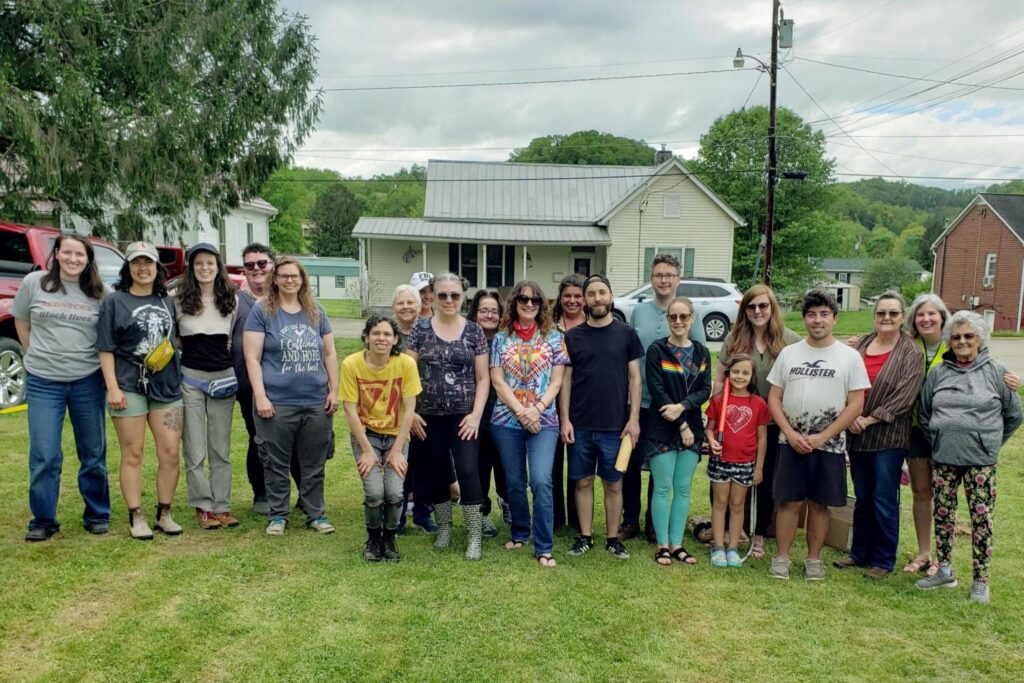Editor’s note: This story was originally published by Mountain State Spotlight. Get stories like this delivered to your email inbox once a week; sign up for the free newsletter at https://mountainstatespotlight.org/newsletter
By Mountain State Spotlight Staff
As the 2023 Regular Legislative Session draws to a close, a bill to restrict sober living homes was voted down, limits on deliberate intent lawsuits passed, families demanded action after jail deaths and a Republican senator was removed from the chamber after disrupting the legislative process.
Delegates and senators were still meeting Saturday and were likely to be at the Capitol into that evening.
Drama, drama, drama
The legislative session’s penultimate day got off to a dramatic start resulting in a Republican member being ousted from the Senate chamber. Sen. Robert Karnes, R-Randolph, a far-right-leaning senator with a history of attention-drawing theatrics and publicly bucking his party, moved to have bills read in full. His goal: to significantly slow down the legislative process, which can have dire impacts on critical legislation in the final days of the session.
In a bit of a parliamentary maneuver, his request was shut down by Senate President Craig Blair, R-Berkeley, so Karnes proceeded to shout at Blair throughout proceedings. A recess was called, and upon reconvening, the state’s longest-serving senator, Donna Boley, R-Pleasants, moved to have the Sergeant at Arms remove Karnes from the chamber.
The Senate recessed shortly after Karnes was removed from the chamber. When they came back, many of the more divisive bills, such as banning gender-affirming health care for minors and banning child marriage, were moved down the calendar and had not been discussed as of 4:30 p.m. (The latter bill was revived late Thursday with an unusual parliamentary move from Senate Judiciary Chairman Charles Trump, R-Morgan.) According to Senate spokesperson Jacque Bland, the move was done to allow lawmakers more time to draft amendments to these bills that can still be amended, and to allow the public more time to read them.
Families demand action after jail deaths
As legislators inside put the finishing touches on the 2023 legislative session, Miranda Smith and Kimberly Burks stood on the steps of the Capitol next to pictures of their dead family members.
The women were bonded by losing loved ones at Southern Regional Jail, the notoriously dangerous facility in Beaver where at least 13 people died last year. They had come to the Capitol, along with a few dozen supporters, to demand state leaders do something about it.
“They beat him while he was in handcuffs,” Burks said, talking about her son, Quantez, who died about a year ago. Correctional officials have never released any investigatory findings in Burks’ death – and it’s unclear if any investigation was ever conducted. His official cause of death was a heart attack, but Kimberly Burks said an independent autopsy showed he had suffered blunt force trauma throughout his body.
Miranda Smith shared a similar story of heartbreak and pain. Her father, Alvin Shrewsbury, died last September after 19 days in Southern Regional. Smith said inmates were beating her father before he ultimately died of internal bleeding. She said she received almost no information from correctional officials about her father’s death. She had to cobble together accounts from other inmates and paramedics to get a clearer picture of her father’s final moments.
“The angst of not knowing was stronger than my grief,” she said.
Hours later, delegates passed a bill that will restore a small measure of transparency to the system. The passage of SB 495 rolls back legislation passed last year that makes almost all jail records confidential, including incident reports and videos related to deaths. The bill is the result of reporting by Mountain State Spotlight, which highlighted how last year’s bill made the jails more secretive.
Lawmakers move to rollback campaign finance disclosure requirements
The House of Delegates passed two bills affecting campaign disclosure. The first would allow grassroots lobbying groups like the Koch-funded Americans For Prosperity to disclose fewer donors; the second similar bill would limit disclosure for outside spending groups like the super PAC Mountain State Values.
Lawmakers initially rejected the first measure — SB 508 — in a 35-61 vote. But an hour and a half later, they voted to reconsider the bill and ultimately voted to pass it, 49-41. The move drew a passionate speech from Del. Shawn Fluharty, D-Ohio.
“The West Virginia Legislature voted down expanding dark money and then thirty minutes later changed their minds!” he said on the floor. “Laughable. Absolutely laughable. And quite frankly, it’s just sad.”
While supporters of loosening disclosure limits for “grassroots lobbying” portrayed the action as one largely taken up by citizens, the largest grassroots lobbying group in the state is Americans For Prosperity, which spent over $250,000 in 2022.
If you’re confused about what terms like “super PAC” and “grassroots lobbying” mean, you can read this issue of our Power & Possums newsletter about how big donors and dark money influence West Virginia politics.
Bill restricting Cabell County recovery residences fails
The House of Delegates voted down on Friday a Senate bill that would’ve placed more restrictions on some Cabell County recovery residences. Also known as sober living homes, these facilities help people who’ve stopped using addictive substances transition into long-term sobriety.
The bill would’ve prevented some of the county’s recovery residence operators from kicking out residents without going through a formal eviction process, save for a few exceptions. It would’ve also required the state to study Cabell County as a pilot program and consider expanding these protections to other parts of West Virginia.
Although lawmakers said the bill was intended to protect people from being made to live on the street, recovery residence operators were worried it would have negative consequences. They said residence operators sometimes need to quickly kick someone out without going through a formal eviction process — largely to protect other residents and their sobriety.
If someone left a recovery residence before the end of the entire period they’d paid rent for, the bill would’ve also required the operator to refund them for the remainder of their stay within 72 hours. Del. Mike Pushkin, D-Kanawha, who is openly in long-term recovery, railed against this requirement during today’s House floor session, as he asked lawmakers to vote against the bill.
“There are very few bills in here that we take up that actually are life or death issues. This is,” Pushkin said. “When somebody in early recovery moves into one of these houses, they’re in mid-relapse, they have to leave because their behavior affects everybody else in the house, and we’re putting it in code how quickly they’re going to have to be handed money to kill themselves with. This will result in overdose deaths.”
Pushkin also asked Del. Moore Capito, R-Kanawha, to pull out a physical copy of the West Virginia Constitution and read several types of local laws the state Legislature is not allowed to pass: laws “regulating the practice in courts of justice” or laws “remitting fines, penalties or forfeitures.” Pushkin argued the recovery residence bill did both, making it unconstitutional.
The measure was ultimately rejected, 43-52.
Bill to limit deliberate intent payouts to become law
A bill that will limit lawsuit payouts to workers who are injured after being deliberately exposed to unsafe conditions by their employers will be sent to Gov. Jim Justice after a 24-8 vote in the Senate this afternoon. While no one spoke in favor of the bill, both a Republican and Democratic Senator spoke against it.
“I think there’s some bad actors out there who want some more protection,” Sen. Mike Caputo, D-Marion. “I think there’s people who want more protection because they’re not doing what they’re supposed to be doing in providing a safe environment and workplace for their workers.”














